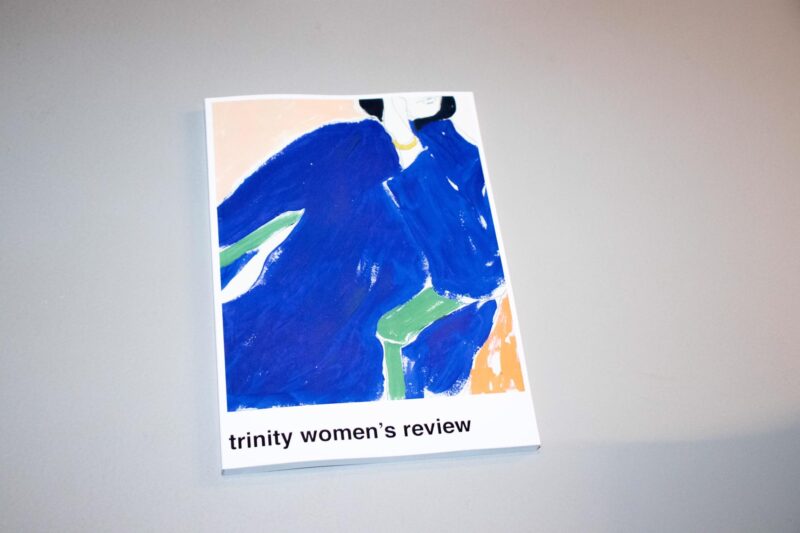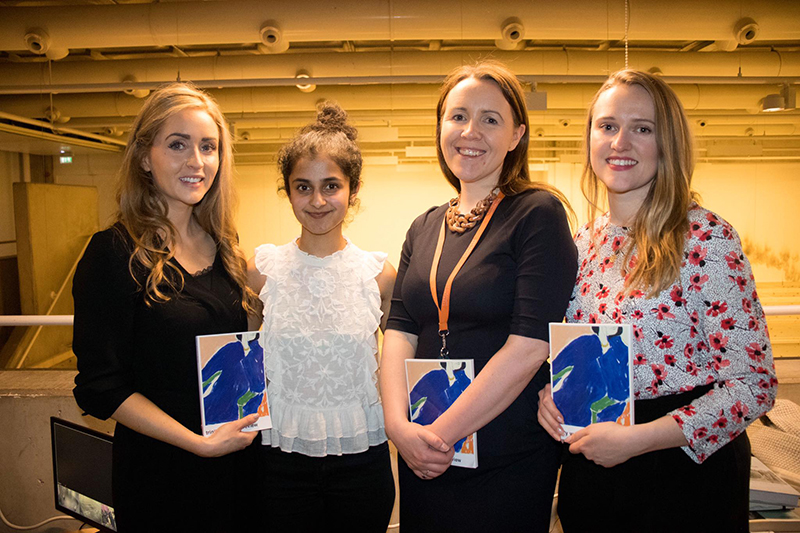Monday evening saw an opening to International Women’s Week that was both apt and entirely inspiring. The publication of the fourth volume of the Trinity Women’s Review was celebrated by a small crowd in the Douglas Hyde Gallery, with an address from human rights and migrant women’s activist Salome Mbugua.
Newly printed glossy volumes of the Trinity Women’s Review were laid out for guests to read, while wine and canapes from Fallon and Byrne were duly sipped and nibbled.
In a heartening speech to her guests, Editor-in-Chief Hiba Awan reminded us that although Ireland has achieved multiple significant milestones since the publication of their first volume in 2016, women still face great difficulties in the world of academia today.
She noted that women triumphed in the repealing of the eight amendment, and in the lifting of the abortion ban in Northern Ireland. However, it remains that three quarters of university professorships, and two thirds of associate professorships, are held by men, despite the fact that 45 per cent of academic staff are women.
The Trinity Women’s Review champions the work of these overlooked individuals, “offering all self-identifying women and non-binary students of Trinity College a platform to showcase their rich and diverse academic opinion and research”.
With topics ranging from the influence of pregnancy rituals to Sharia Law, the complexity and breadth of subject matters published in this fourth volume are a solid reflection of this goal.
Salome Mbugua’s address furthered the evening’s theme of gender equality and women’s rights, stressing their importance in Ireland and across the globe, and emphasising that “human rights apply to everybody, regardless of where they come from”.

Mbugua spoke about her work as head of operations and strategy with AkiDwA, a national network of migrant women living in Ireland. Her work entails helping women who have experienced isolation and racism as a result of their “outsider” status in Ireland, and also nationwide work to fight for victims of Female Genital Mutilation.
She helps to link women to support services and hopes to reduce the stigmatisation of mental health. She stressed that “FGM is not a cultural practice, it’s a harmful practice”, and insisted that all women, no matter their culture, deserve equal opportunity and ownership of their own bodies.
But it is not only up to women like Mbugua to solve these problems. There are so many ways that we can speak out against the discrimination of women today; with the power of social media, we don’t need to be a celebrity or a leader to make a difference.
Mbugua encouraged us all to tweet, write letters or simply just to speak out to enable women to thrive in an equal world. She finished by declaring that “an equal world is an enabled world”, and that it is as much up to us as normal people as it is to leaders to open our societies to cultural shift.
The rallying cries of Mbugua resonated in the walls of the Douglas Hyde Gallery, calling Trinity’s students and faculty members to support and cherish the academic work of self-identifying women and non-binary persons. The Trinity Women’s Review is the manifestation of these values and can be considered another great step towards the equality of women in Ireland and the world today.







